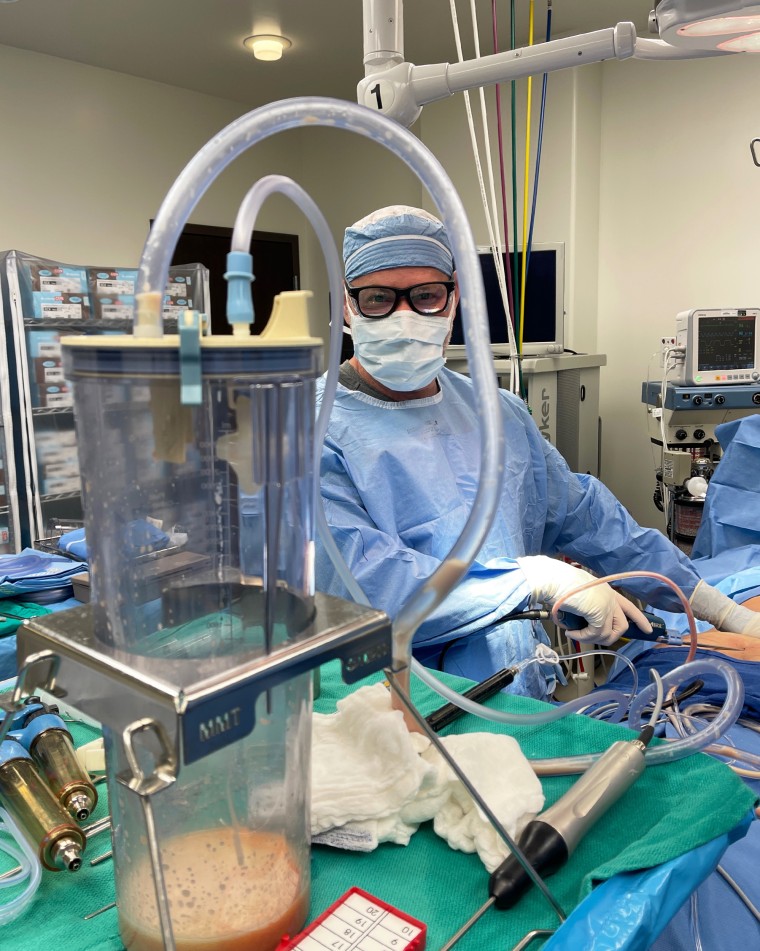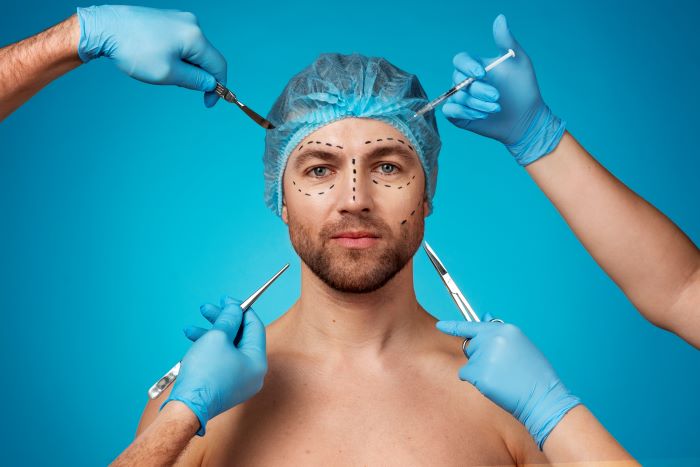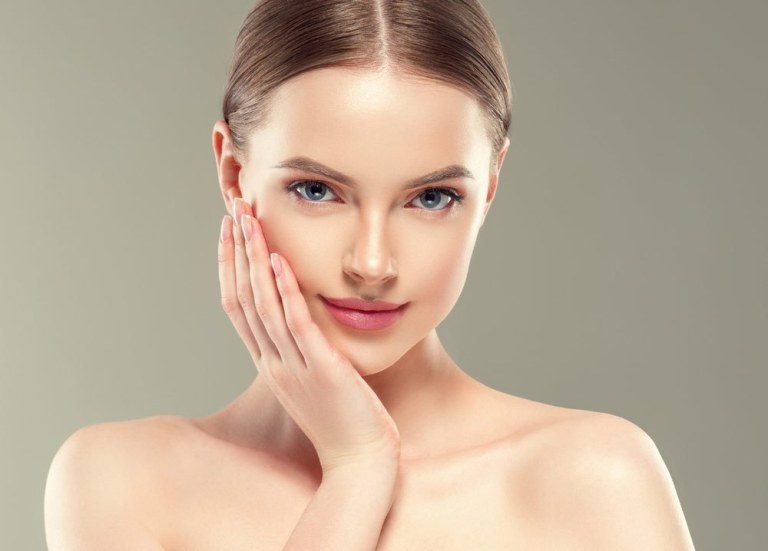Examining the Emotional and Social Variables That Drive People to Think About Plastic Surgery as a way of Renovation
The choice to go after cosmetic surgical treatment frequently prolongs beyond plain appearances, intertwining with mental and social characteristics that warrant comprehensive assessment. Variables such as self-confidence, pervasive social elegance requirements, and the pervasive impact of social networks merge to shape individual inspirations for surgical improvement. As these impacts become increasingly prominent, recognizing the underlying social and emotional contexts is vital. What stays to be discovered is the extensive influence these elements have not only on individuality but likewise on wider societal standards and worths bordering charm and acceptance.
The Function of Self-Esteem
Self-confidence considerably influences a person's decision to pursue cosmetic surgical treatment. Individuals with reduced self-worth frequently perceive themselves in an adverse light, leading to sensations of insufficiency concerning their physical appearance.

Inevitably, the role of self-worth in the decision-making process concerning plastic surgery highlights the complicated interplay between body image, personal satisfaction, and psychological wellness. Recognizing this connection is vital for medical care professionals to ensure that people are making educated choices rooted in practical expectations and emotional well-being.
Societal Beauty Standards
Influenced by prevalent media portrayals and cultural stories, societal appeal criteria play a vital role in forming people' understandings of their very own bodies. These requirements are typically defined by an idealized form of charm that highlights qualities such as youthfulness, proportion, and slimness. As these suitables are continued via different channels, consisting of movie, advertising and marketing, and tv, individuals frequently internalize these messages, causing frustration with their natural appearance.
The effects of these societal standards expand beyond visual choices; they can influence self-confidence, mental health, and social partnerships. People who view themselves as disappointing these requirements might experience feelings of inadequacy, motivating a need for plastic surgery as a way of accomplishing social authorization. This pursuit is typically sustained by the idea that conforming to these suitables will certainly enhance not only physical look yet likewise social standing and individual satisfaction.

Influence of Social Network
The impact of societal appeal criteria is more intensified by the rise of social networks platforms, where curated images and idealized depictions of elegance are common. Users are frequently subjected to filtered and edited pictures, which commonly portray unattainable physical attributes. This exposure cultivates a culture of comparison, leading people to evaluate their very own look versus these frequently impractical criteria.
Social media influencers and celebs often advertise cosmetic procedures, normalizing the notion that medical improvements are a sensible methods for attaining social ideals (plastic surgery rancho cucamonga). The exposure of these improvements can develop an assumption that going through plastic surgery is a basic practice, thereby affecting individuals to this website consider similar treatments as a pathway to enhanced self-esteem and social approval
In addition, the interactive nature of social media sites permits prompt feedback with sort and remarks, better enhancing the desire to adjust to prominent appeal standards. Such communications can exacerbate sensations of insufficiency and drive individuals towards cosmetic surgical treatment as a way of obtaining recognition. Ultimately, social media plays a pivotal role in forming understandings of charm, which considerably impacts the decision-making procedures surrounding cosmetic surgery.

Cultural Perspectives on Look
Across various cultures, understandings of look are deeply rooted in historical, social, and economic contexts, forming individuals' views on beauty and value. In numerous societies, appearance serves as a considerable pen of identity, influencing social standing, professional opportunities, and individual relationships. For instance, in some cultures, light skin is typically associated with wide range and opportunity, while others may idealize darker complexion as symbols of toughness and authenticity.
Moreover, traditional elegance criteria are usually bolstered via social narratives, media depictions, and family affects, causing differing suitables throughout different areas (plastic surgery rancho cucamonga). In Western societies, the emphasis on young people and physical fitness usually drives individuals towards aesthetic enhancement, while in specific Eastern societies, even more subtle adjustments aligned with typical appearances might be chosen
Globalization and the proliferation of electronic media have actually further complicated these dynamics, creating a hybridization of appeal ideals that goes beyond geographical limits. As people increasingly navigate these cultural stories, the stress to adapt to particular appearance standards can lead to the click for more wish for plastic surgery, showing a complex interaction of personal ambitions and cultural worths. Comprehending these social perspectives is vital in dealing with the motivations behind cosmetic surgical treatment site web factors to consider.
Mental Influences of Aesthetic Surgical Procedure
Lots of people seeking cosmetic surgery report experiencing profound mental influences that can considerably alter their self-perception and psychological well-being - plastic surgery rancho cucamonga. The need for physical enhancement typically stems from underlying problems such as reduced self-confidence, body dysmorphic problem, or social pressures pertaining to elegance standards. For some, the immediate post-operative phase can result in a short-term increase in self-confidence and satisfaction with their appearance, cultivating a sense of empowerment
However, these positive feelings might not be withstanding. Study shows that while some patients experience boosted self-esteem, others may deal with increased anxiety or depression if their expectations are not fulfilled. This inconsistency can arise from unrealistic ideals continued by media representation and social narratives bordering charm.
Furthermore, the emotional ramifications of plastic surgery extend past the individual. Relationships with friends and family may be stressed as social characteristics shift, resulting in feelings of isolation or alienation. Ultimately, the psychological influences of cosmetic surgery are complex and complicated, requiring careful consideration by both possible individuals and healthcare carriers to guarantee enlightened decision-making and realistic assumptions.
Verdict
In conclusion, the decision to go after plastic surgery is significantly influenced by a combination of self-worth concerns, societal appeal criteria, and social perspectives on appearance. The prevalent reach of social media better intensifies these stress, advertising impractical perfects that people often strive to achieve. Recognizing these emotional and social elements is necessary for addressing the motivations behind plastic surgery, highlighting the need for a much more nuanced conversation surrounding appeal and self-acceptance in modern society.
The decision to seek cosmetic surgery commonly prolongs past mere looks, linking with social and emotional dynamics that warrant extensive exam. Inevitably, social media plays a pivotal function in shaping understandings of beauty, which significantly affects the decision-making procedures surrounding cosmetic surgical procedure.
As people increasingly browse these social narratives, the stress to adapt to certain look standards can lead to the wish for cosmetic surgical procedure, reflecting a complicated interaction of social values and personal aspirations.In conclusion, the decision to seek cosmetic surgery is considerably influenced by a combination of self-confidence concerns, social elegance requirements, and social point of views on look. Understanding these social and psychological aspects is necessary for attending to the inspirations behind cosmetic surgical treatment, highlighting the need for a more nuanced conversation bordering appeal and self-acceptance in modern society.